“Did I do that?”
Mistakes… We all make them.
Then why is it often so hard to own them?
Maybe it’s because we grow up in a culture where mistakes are viewed as failure, and we learn in our earliest school years that failure is bad. If we aren’t lucky enough to have role models who show us that mistakes and failure are how we learn, then we are always uncomfortable with making mistakes.
Another component of not wanting to admit to a mistake can stem from instinct. Owning or admitting a mistake may make us feel weak or inferior in some way. Our instinct brain, which is programmed for survival, views weakness as a threat to our survival.
If you add a situation where we are confronted by someone about our mistake, then our instinct brain goes into defensive mode.
All of this creates the space where we want to deny making mistakes.
Irony….Not owning a mistake is…A Big Mistake!
Owning a mistake, apologizing for it, and then figuring out how to correct it and not make it again is critical. Owning a mistake is often seen as a sign of maturity and self-awareness. In fact, this can actually build trust in some circumstances, both in your personal and your professional life.
In the workspace, creating a culture that allows for people to be human and make mistakes, to try things and fail, and try again is the key to innovative ideas and people willing to take initiative and ownership of projects. This attitude and culture are how new products are created. Without this attitude no one is willing to try anything new or step outside their comfort zone.
As a manager, I once had an employee I wanted to learn a new skill needed for an additional responsibility. She was very reluctant because she was afraid she would make a mistake…she would fail. Once I told her there was no way she could fail – because I would double check her work before it went to anyone who might be upset by a mistake – she was eager to learn the new skill. And, not surprisingly, she quickly became very good with the new responsibility. She needed to be confident that the mistakes she made while she learned would not be cause for punitive or corrective action that could impact her job.
Not trying something new due to a fear that failure will have negative consequences in a job is an instinctive reason for not learning or trying new things, and a very common one.
She had clearly had managers in the past (possibly also in her personal life) that criticized and took a punitive approach to mistakes. She had learned to protect herself and her job by not putting herself in a position that made her vulnerable to losing her livelihood.
As her manager, I built trust and gave her permission to make mistakes without negative consequences. This provided the safety her instinct brain needed to learn something new. After repetitive proof that errors are merely identified as information to revise, and she was allowed to correct them before presenting the final document for approval, she gained confidence and ownership of the new area of responsibility.
She gained confidence and skills, and the company got a more valuable and versatile employee – a win:win!
And guess what?
Once she understood that she could make mistakes, own them, bring them to my attention and get help correcting them…she had the safety to bring slightly more intimidating errors to my attention. They didn’t happen often, but we are all human, and they happen. But because I created an environment where it was safe to own those mistakes, they were discovered earlier which allowed them to be corrected earlier.
Catching mistakes early means they can often be corrected before too much damage is done. If it’s not safe to admit mistakes, then people hide them, try to solve them alone when they don’t have the skills or tools, and often make the problem worse. This can result in a minor issue becoming a VERY COSTLY situation.
So, cultivate an environment, at work and in your personal life, that allows people to be human and encourages people to own their mistakes.
When you make a mistake, follow these steps:
- Own it.
- Apologize for it.
- Correct it.
- Take steps to ensure you don’t make it again.
Also, know that when anyone is learning a new skill there will be lots of mistakes. This applies to humans and animals. This is NORMAL. It is also true that when learning something new, a skill that was previously rock solid is likely to deteriorate – this is also NORMAL. Allow grace during learning periods – for yourself and others.
If you knew exactly how to do one task (so well you could practically do it in your sleep), and then you start learning a new task and suddenly you can’t remember a step in the first task….that’s OK. Ask. Look it up. Because that’s NORMAL!
For how to craft a really good apology, tune in to next month’s blog.

